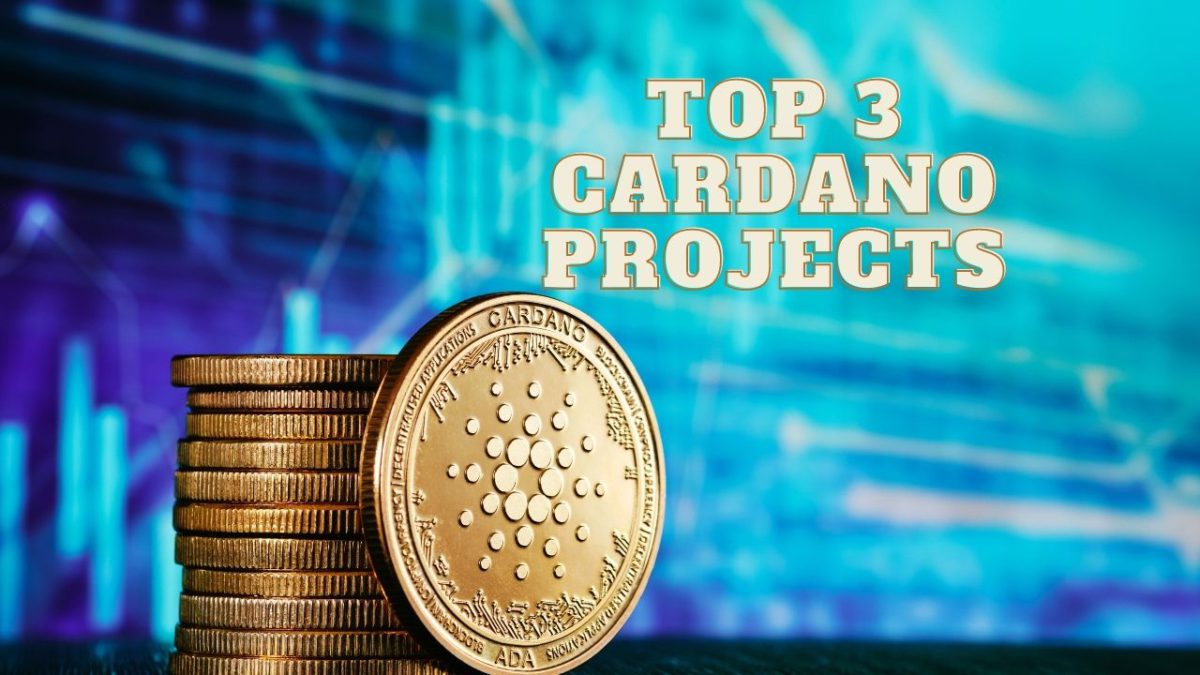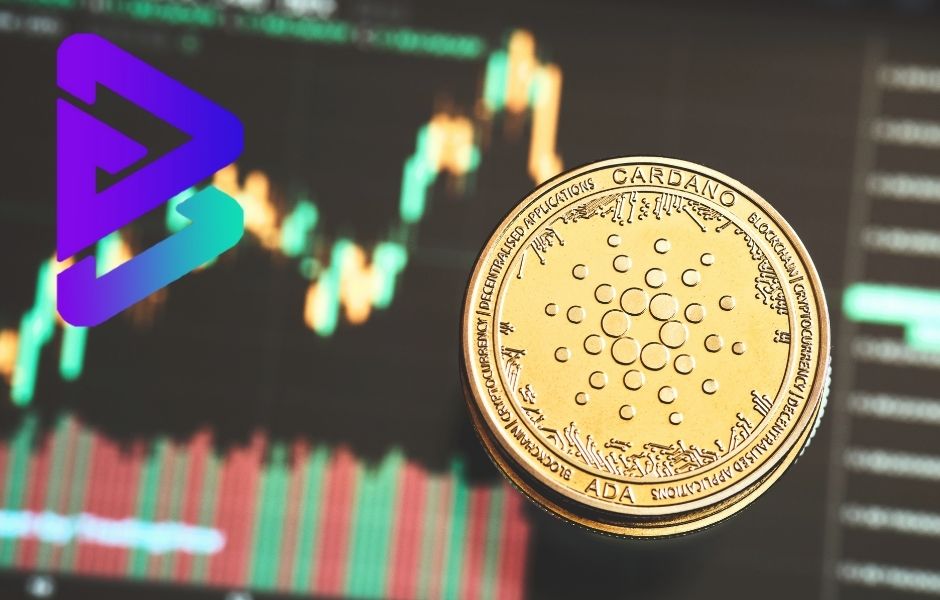DeFi for Her In 2024: Why Women are Embracing Decentralized Finance as the Future of Financial Freedom
Financial independence has long been a goal for women around the world. Traditionally, achieving this independence has required navigating complex and male-dominated financial systems. However, a new wave of change is sweeping across the financial landscape, providing women with an unprecedented opportunity to take control of their financial futures—Decentralized Finance (DeFi).
DeFi, or decentralized finance, refers to blockchain-based financial services that operate without intermediaries such as banks or brokerage firms. It is an open, permissionless system where anyone with an internet connection can participate. The rapid growth of DeFi, often dubbed “the new financial revolution,” is changing how we think about money, investments, and economic power. For women, this shift is opening doors that were previously closed.
In this article, we’ll explore why women are increasingly embracing DeFi as a tool for financial freedom and how it aligns with the larger movement for gender equality in finance.
The State of Women in Traditional Finance
Historical Barriers to Women’s Financial Independence
For much of history, women were excluded from financial decision-making. Legal and societal norms restricted women’s rights to own property, make investments, or even open a bank account without male approval. Although these barriers have diminished, gender inequality in finance persists.
Women continue to earn less than men for comparable work and have less access to investment opportunities. A 2022 study found that women in the U.S. earn, on average, only 82 cents for every dollar a man earns. Globally, this gap is even wider. Additionally, traditional financial institutions have historically underserved women, offering fewer products and less tailored advice compared to their male counterparts.
The Gender Investment Gap
The investment gap—where men are more likely to invest their money than women—is another hurdle. According to research by Fidelity, only 29% of women see themselves as investors, despite studies showing that women tend to outperform men when they do invest. The result is that women are often less prepared for retirement and other long-term financial goals.
These barriers make it more challenging for women to achieve financial independence through traditional financial systems. This is where DeFi enters the picture, providing an alternative that aligns more closely with the values of empowerment, equality, and inclusion.
Also, read – Top 10 Women in NFT Development: Breaking Barriers and Leading Innovation In 2024
Why Women Are Turning to DeFi
1. Financial Independence Without Gatekeepers
In traditional finance, intermediaries such as banks, brokers, and financial advisors have significant power. For women, this can be a disadvantage, especially when these gatekeepers are predominantly male. DeFi eliminates the need for intermediaries, allowing women to take full control of their financial activities.
In a decentralized system, anyone can participate, regardless of gender, social status, or location. Women don’t need approval from a financial institution to open an account, invest, or take out a loan. All they need is a digital wallet and an internet connection. This freedom is especially impactful for women in developing countries, where access to banking services is limited.
2. Equal Access to Investment Opportunities
DeFi opens the door to a wide range of investment opportunities that were previously out of reach for many women. Decentralized lending platforms, liquidity pools, and yield farming offer higher returns compared to traditional savings accounts or stock market investments. Additionally, the barrier to entry is lower—there’s no need for a brokerage account or a large sum of money to get started.
For example, platforms like Aave and Compound allow users to lend their crypto assets and earn interest, while decentralized exchanges (DEXs) like Uniswap enable peer-to-peer trading without the need for a middleman. These platforms are accessible to anyone with a smartphone, and there are no hidden fees or gender bias in the system.
3. Transparency and Trust
One of the core principles of DeFi is transparency. Every transaction is recorded on a public blockchain, which anyone can audit. This level of transparency is a stark contrast to traditional financial systems, where transactions are often opaque, and power dynamics can be manipulated.
For women, who have historically been marginalized in financial systems, the transparency of DeFi is a game-changer. It creates a level playing field where trust is built into the system, rather than reliant on human intermediaries who may harbor biases. Smart contracts, which are self-executing contracts with the terms of the agreement directly written into code, further reduce the risk of fraud or discrimination.
4. Education and Community Support
Women in the DeFi space are not just users—they are creators, developers, and educators. Communities of women in blockchain and DeFi are flourishing, providing mutual support, sharing knowledge, and encouraging more women to participate.
Organizations like SheFi and Women in Blockchain are dedicated to educating women about decentralized finance and blockchain technology. These communities offer workshops, mentorship programs, and networking opportunities, helping women navigate the complexities of DeFi while fostering a sense of belonging.
The rise of online content, podcasts, and webinars has made it easier for women to learn about DeFi. There is a growing ecosystem of female content creators who are demystifying blockchain concepts, making it more accessible for newcomers. This surge in educational resources empowers women to make informed financial decisions, reducing the reliance on third-party advisors who may not always have their best interests at heart.
DeFi Use Cases Empowering Women
1. Decentralized Lending and Borrowing
Traditional lending systems often require a good credit score, collateral, and extensive documentation, making it difficult for women, especially those in underbanked regions, to access loans. In contrast, DeFi lending platforms allow individuals to borrow and lend funds in a decentralized manner, using cryptocurrencies as collateral.
Women in countries with limited access to traditional banking can now access loans without discrimination or geographic barriers. Platforms like MakerDAO enable users to take out loans by using digital assets like Ethereum (ETH) as collateral, bypassing the need for a credit history. This financial flexibility enables women to start businesses, fund education, or support their families, contributing to economic empowerment.
2. Peer-to-Peer Payments and Remittances
For women living in countries with unstable currencies or restricted access to banks, DeFi offers a way to send and receive money globally. Decentralized payment systems like Stellar and Celo enable fast, low-cost remittances without the need for an intermediary like Western Union or PayPal.
These peer-to-peer payment solutions are crucial for women who support their families through remittances. Traditional remittance services often charge high fees, which eat into the money sent home. By using DeFi platforms, women can keep more of their hard-earned money, reducing financial pressure and improving quality of life.
3. Tokenized Assets and Wealth-Building
DeFi allows users to tokenize assets, creating new investment opportunities that were previously inaccessible to everyday investors. Tokenization refers to the process of converting real-world assets, like real estate or stocks, into digital tokens that can be traded on a blockchain.
Women are increasingly using tokenized assets as a way to diversify their investment portfolios. By purchasing tokenized shares of real estate or commodities, women can gain exposure to high-value assets without needing significant capital upfront. This democratization of wealth-building tools helps close the gender wealth gap.
4. Financial Inclusion in Developing Countries
Women in developing nations often face the dual challenge of being financially excluded while also shouldering the burden of managing household finances. DeFi offers a way to bridge this gap. By providing access to decentralized savings accounts, stablecoins (cryptocurrencies tied to the value of stable assets like the U.S. dollar), and yield-generating protocols, women in these regions can build financial security without relying on local banks.
For example, projects like Celo focus specifically on financial inclusion for underserved populations, making it easier for women to access digital currencies and decentralized savings accounts via mobile phones. This empowers women in emerging markets to save, invest, and manage their finances independently.
Challenges and Risks for Women in DeFi
While DeFi offers numerous benefits, it also comes with risks and challenges, especially for newcomers. Here are some key concerns women need to be aware of as they venture into decentralized finance:
1. Lack of Regulation and Security
One of the biggest criticisms of DeFi is its lack of regulation. While the permissionless nature of DeFi is empowering, it also makes the space more vulnerable to hacks, scams, and fraud. Women who are new to DeFi may find it challenging to navigate the landscape and identify safe platforms.
Smart contract vulnerabilities and rug pulls—where developers suddenly withdraw all funds from a project—are common risks. It is essential for women to thoroughly research platforms, understand the underlying technology, and remain cautious about too-good-to-be-true offers.
2. Technical Complexity
The world of DeFi can be daunting for those without a background in blockchain or finance. Understanding how to use decentralized exchanges, liquidity pools, and yield farming protocols requires a certain level of technical expertise. While educational resources are improving, the learning curve can still be steep, particularly for women who may already be juggling multiple responsibilities.
3. Volatility of Crypto Assets
Cryptocurrencies, which are the backbone of DeFi, are known for their volatility. While high returns are possible, they come with significant risk. Women investing in DeFi need to be mindful of market swings and be prepared for potential losses. Stablecoins, which are tied to traditional assets like fiat currency, offer a safer option for those looking to avoid the volatility of assets like Bitcoin or Ethereum.
4. Gender Disparity in Tech
Although DeFi is more inclusive than traditional finance, the broader tech industry remains male-dominated. This imbalance can sometimes be reflected in DeFi communities and projects. It is essential for women to seek out supportive networks and mentors to help them navigate the male-dominated spaces that still exist within the industry.
The Future of Women in DeFi
The future of women in DeFi is one of immense potential. As more women enter the space, they are not only users but also innovators, building projects that address gender-specific challenges. DeFi is democratizing access to financial resources in a way that traditional finance has never been able to, and women are poised to lead this revolution.
1. Gender-Specific DeFi Solutions
As women continue to embrace decentralized finance, we are seeing the development of gender-specific DeFi solutions designed to meet the unique needs of women. These platforms and tools are being created to address everything from the gender investment gap to financial education and literacy. For instance, some DeFi platforms are offering investment portfolios tailored to the financial goals that women prioritize, such as education, family, and long-term security.
Organizations like “SheFi” and “Girls Just Wanna Have Funds” are stepping up to empower women through specialized investment opportunities in DeFi. These organizations provide resources to help women take the leap into DeFi and blockchain technology, creating a safe space for learning and growth.
2. DeFi and Women in Leadership
The emergence of women-led DeFi projects is another exciting development. Women leaders in blockchain and DeFi are creating inclusive spaces for female investors, developers, and innovators. They are driving initiatives that prioritize diversity, financial inclusion, and ethical governance in the blockchain space. Notable women in DeFi include Stani Kulechov, the founder of Aave, a decentralized lending platform, and Camila Russo, the creator of The Defiant, a leading DeFi media outlet.
These women are paving the way for others, proving that DeFi is not just about financial empowerment but also leadership, innovation, and representation. As the DeFi ecosystem matures, we can expect to see more female-driven projects that challenge the status quo and break down the barriers that have historically limited women’s access to financial leadership roles.
3. Increased Financial Literacy
One of the most profound impacts of DeFi on women is the increase in financial literacy. Decentralized finance offers a hands-on approach to learning about investments, financial management, and wealth-building. By participating in DeFi, women are gaining skills that can transform their financial futures. The ability to manage a digital wallet, trade on decentralized exchanges, or earn interest through liquidity pools gives women the tools to become financially independent without relying on traditional financial institutions.
Moreover, the accessibility of financial education through DeFi platforms and online communities allows women from all walks of life to engage with these concepts. Whether it’s through YouTube tutorials, DeFi workshops, or interactive courses on platforms like Udemy, women are actively closing the knowledge gap in finance and technology.
Closing the Gender Gap in Finance Through DeFi
The rise of DeFi is more than just a financial revolution; it’s a cultural shift towards inclusivity and equality. For decades, women have faced systemic barriers in accessing financial services, investments, and wealth-building opportunities. Decentralized finance offers a way to bypass these traditional obstacles, giving women equal access to financial freedom.
DeFi is helping to close the gender gap in several key ways:
- Democratizing Finance: By eliminating gatekeepers and offering equal access to financial services, DeFi gives women the opportunity to participate fully in the economy, regardless of their background or financial history.
- Encouraging Female Investors: DeFi platforms are encouraging more women to become investors by offering transparent, accessible, and inclusive financial services. This increase in female participation is helping to reduce the gender investment gap.
- Building Financial Security: DeFi allows women to take control of their financial future through decentralized lending, borrowing, and investment platforms. By building wealth through DeFi, women are better equipped to achieve financial independence and security.
- Creating Female-Led Innovations: Women are not only participants but also leaders in the DeFi space, driving projects and innovations that prioritize diversity and inclusivity. Female-led DeFi platforms are creating a more equitable financial ecosystem for everyone.
Conclusion
Decentralized finance is reshaping the financial landscape, offering unprecedented opportunities for women to achieve financial independence, security, and leadership. By eliminating intermediaries, providing equal access to investment opportunities, and fostering communities of education and support, DeFi is empowering women to take control of their financial futures.
As more women continue to embrace DeFi, we are seeing a new era of financial equality and innovation. The barriers that once held women back in traditional finance are crumbling, replaced by a decentralized, open, and inclusive financial system. For women, DeFi represents more than just an investment opportunity—it’s a pathway to financial freedom and a future where gender no longer dictates one’s financial power.
Women are not just users in this revolution; they are also creators, innovators, and leaders. As DeFi continues to grow, so will the number of women taking charge of their financial destinies, leveraging blockchain technology to build wealth, make informed decisions, and shape the future of finance. The decentralized future is here, and it’s being embraced by women as the ultimate tool for financial freedom.
Stay informed with daily updates from Blockchain Magazine on Google News. Click here to follow us and mark as favorite: [Blockchain Magazine on Google News].
Get Blockchain Insights In Inbox
Stay ahead of the curve with expert analysis and market updates.
latest from tech
Disclaimer: Any post shared by a third-party agency are sponsored and Blockchain Magazine has no views on any such posts. The views and opinions expressed in this post are those of the clients and do not necessarily reflect the official policy or position of Blockchain Magazine. The information provided in this post is for informational purposes only and should not be considered as financial, investment, or professional advice. Blockchain Magazine does not endorse or promote any specific products, services, or companies mentioned in this posts. Readers are encouraged to conduct their own research and consult with a qualified professional before making any financial decisions.

 Bitcoin
Bitcoin  Ethereum
Ethereum  Tether
Tether  XRP
XRP  Solana
Solana  Dogecoin
Dogecoin  USDC
USDC  Lido Staked Ether
Lido Staked Ether  Cardano
Cardano  TRON
TRON  Avalanche
Avalanche  Chainlink
Chainlink  Toncoin
Toncoin  Wrapped stETH
Wrapped stETH  Shiba Inu
Shiba Inu  Wrapped Bitcoin
Wrapped Bitcoin  Sui
Sui  Hedera
Hedera  Stellar
Stellar  Polkadot
Polkadot  WETH
WETH  Bitcoin Cash
Bitcoin Cash  LEO Token
LEO Token  Hyperliquid
Hyperliquid  Litecoin
Litecoin  Uniswap
Uniswap  Pepe
Pepe  Wrapped eETH
Wrapped eETH  NEAR Protocol
NEAR Protocol  Ethena USDe
Ethena USDe  Aave
Aave  USDS
USDS  Internet Computer
Internet Computer  Aptos
Aptos  POL (ex-MATIC)
POL (ex-MATIC)  Cronos
Cronos  Mantle
Mantle  Ethereum Classic
Ethereum Classic  Render
Render  Bittensor
Bittensor  WhiteBIT Coin
WhiteBIT Coin  MANTRA
MANTRA  Monero
Monero  Dai
Dai  Artificial Superintelligence Alliance
Artificial Superintelligence Alliance  Arbitrum
Arbitrum  Filecoin
Filecoin 



